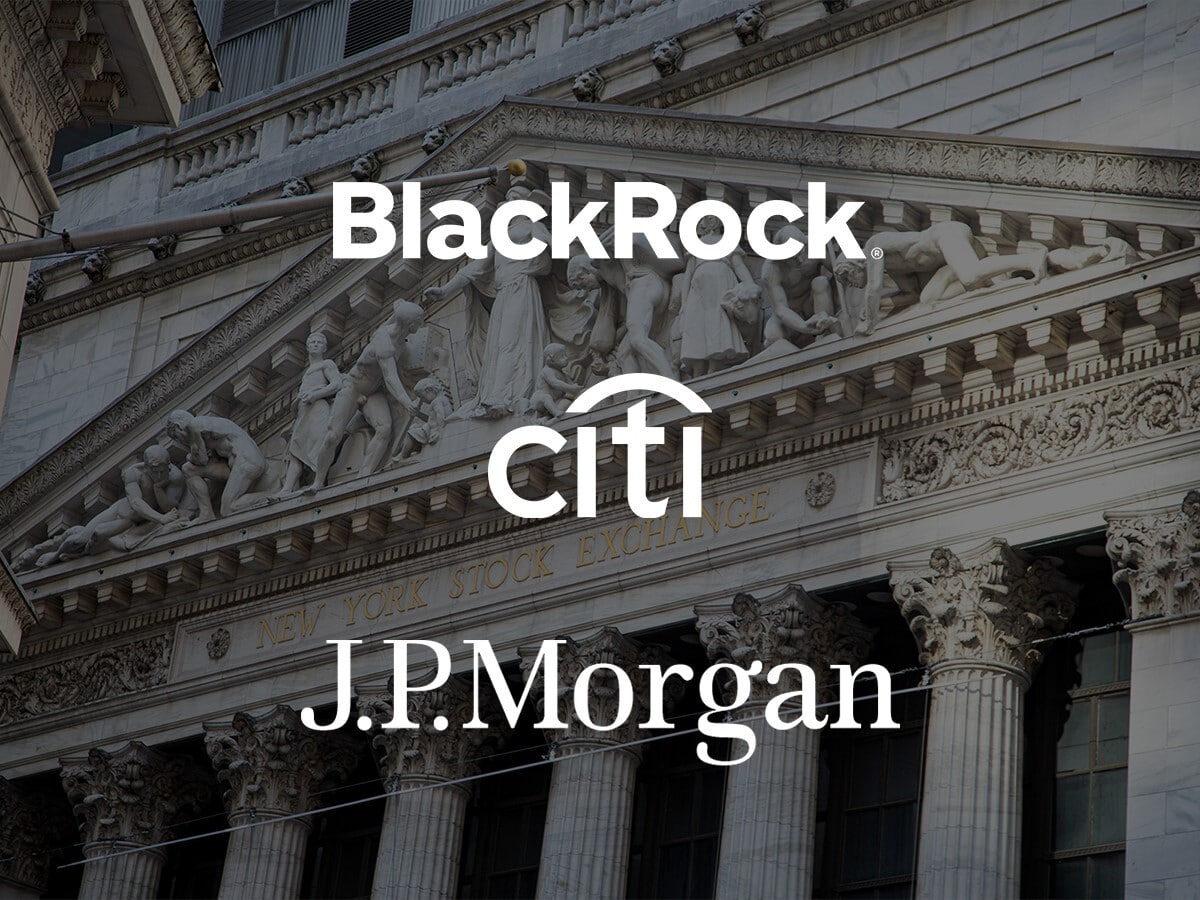Fading inflation fears are helping bonds, stocks and ETFs to recover, which is likely to have boosted BlackRock’s inflows in Q1. However, a rise in deposits and a slowing economy may have weighed on Citigroup and JPMorgan’s net interest margins.
- BlackRock’s assets under management unlikely to have grown in the January to March period.
- Citigroup’s treasury and trade solutions business has been the bank’s “crown jewel” in recent times.
- JPMorgan expected to report the highest net interest margin among major banks.
Big financial institutions get the earnings season rolling in earnest on Friday with BlackRock [BLK], Citigroup [C], JPMorgan [JPM] delivering their latest results.
Much of the attention ahead of the reports has been on the Silicon Valley Bank (SVB) crisis that engulfed the broader banking sector and sparked concerns about consumer confidence.
“[T]he current crisis is not yet over, and even when it is behind us, there will be repercussions from it for years to come… Any crisis that damages Americans' trust in their banks damages all banks—a fact that was known even before this crisis,” wrote JPMorgan chairman and CEO Jamie Dimon in his annual shareholder letter, released last week.
The JPMorgan share price is down 2.7% year-to-date and down 3.8% in the past month. The BlackRock share price is down 5.3% and up 6% in the respective periods. The Citigroup share price is up 4.6% and down 1%.
Bond ETFs could be a bright spot for BlackRock
Weak market performance means it’s unlikely that BlackRock’s assets under management (AUM) saw growth in the first three months of the year. AUM at the end of the fourth quarter (Q4) of 2022 stood at $8.6trn, down from $10trn in the year-ago quarter, but up from $7.96trn in Q3 2022.
Investors will also be paying close attention to BlackRock’s inflows. The asset manager’s net inflows were $146bn in Q4 2022, up from $65bn in Q3 2022, as stocks and bonds gained on hopes that inflation had peaked. Its iShares ETFs remain popular long-term investments.
Bond ETFs could be a bright spot. BlackRock chairman and CEO Larry Fink said on the Q4 2022 earnings call that bond ETFs are set to “become one of the most important transformations in the entire capital markets”, making “investing in bonds easier with more liquidity”, as well as bringing down costs.
Citigroup expected to report a sharp rise in deposits
Citigroup saw deposits spike as investors pulled their uninsured deposits from regional and smaller banks and sought the safety of big financial institutions. A person familiar with the matter told CNN that Citigroup had been speeding up new account openings across its retail, small business lending and wealth management businesses.
Investors will have an eye on how the rise in deposits and slowing interest rate hikes may have impacted Citigroup’s net interest margin (NIM), i.e., the interest paid on loans minus the interest paid out to depositors.
The bank’s treasury and trade solutions business, previously described as its “crown jewel” by CEO Jane Fraser, saw revenue jump 36% year-over-year to $3.3bn in the last quarter, largely driven by a 61% growth in net interest income. Investment banking revenue fell 58% to $645m due to reduced client activity leading to a slowdown in deal-making. Total Q4 revenues increased 6% to $18bn.
A slowing economy could weigh on JPMorgan
Analysts polled by Refinitv are expecting JPMorgan to report the highest NIM, Reuters reported earlier this week.
On the Q4 2022 earnings call in January, the bank said it had forecast 2023 net interest income to be $74bn, a figure “not only below consensus of $75.5bn, but below the bullish buy side base case of $76bn to $77bn”, according to a note from UBS analysts seen by the Financial Times. Investors will be looking out for any commentary as to what impact the macro environment in the first quarter may have had on its net interest income target.
Higher interest income had helped to offset lower market levels in the three months to the end of December, according to Dimon. The bank had $2.8trn in AUM at the end of Q4 2022, down 11% year-over-year. Despite this, the asset and wealth management unit saw its revenue rise 3% to $4.6bn, while it reported a 1% increase in net income to $1.1bn.
As of 11 April, Citigroup and JPMorgan Chase are the top two holdings in BlackRock’s iShares S&P US Banks UCITS ETF [BNKSF], which is down 18.7% year-to-date and down 25% in the past month.
Disclaimer Past performance is not a reliable indicator of future results.
CMC Markets is an execution-only service provider. The material (whether or not it states any opinions) is for general information purposes only, and does not take into account your personal circumstances or objectives. Nothing in this material is (or should be considered to be) financial, investment or other advice on which reliance should be placed. No opinion given in the material constitutes a recommendation by CMC Markets or the author that any particular investment, security, transaction or investment strategy is suitable for any specific person.
The material has not been prepared in accordance with legal requirements designed to promote the independence of investment research. Although we are not specifically prevented from dealing before providing this material, we do not seek to take advantage of the material prior to its dissemination.
CMC Markets does not endorse or offer opinion on the trading strategies used by the author. Their trading strategies do not guarantee any return and CMC Markets shall not be held responsible for any loss that you may incur, either directly or indirectly, arising from any investment based on any information contained herein.
*Tax treatment depends on individual circumstances and can change or may differ in a jurisdiction other than the UK.
Continue reading for FREE
- Includes free newsletter updates, unsubscribe anytime. Privacy policy





